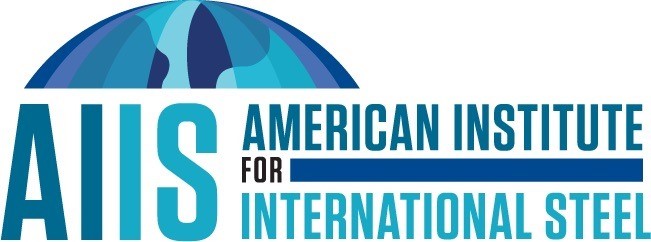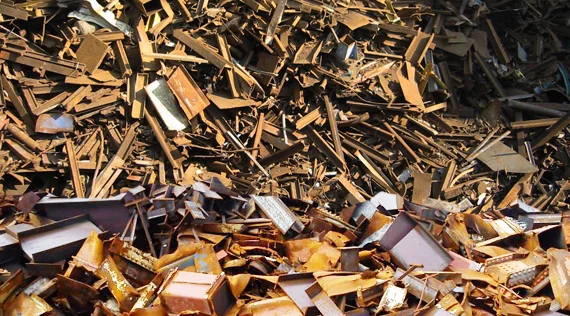The order directs the secretary of homeland security to submit a plan within 90 days to collect revenue from importers who are subject to duties.
Falls Church, VA(AIIS) - Trump Executive Orders Target Unpaid Duties, Trade Deficits
President Donald Trump on March 31 issued an executive order aimed at “establishing enhanced collection and enforcement of antidumping and countervailing duties.”
Noting that, as of two years ago, $2.3 billion in antidumping and countervailing duties remained uncollected, the order states that the United States will “impose appropriate bonding requirements, based on risk assessments, on entries of articles subject to antidumping and countervailing duties.”
The order directs the secretary of homeland security to submit a plan within 90 days to collect revenue from importers who are subject to duties and are judged to be more likely not to pay, and that, in addition, would provide for increased enforcement of trade laws.
On the same day, Trump issued an executive order that cites “unfair and discriminatory practices by our trading partners” in directing the secretary of commerce and the U.S. trade representative to submit a report within 90 days on the nation’s trade deficit.
Among other things, the report is to identify all countries with whom the United States had a trade deficit in 2016 and “assess the major causes of the trade deficit, including, as applicable, differential tariffs, non-tariff barriers, injurious dumping, injurious government subsidization, intellectual property theft, forced technology transfer, denial of worker rights and labor standards, and any other form of discrimination against the commerce of the United States.” The report is also to “assess whether the trading partner is, directly or indirectly, imposing unequal burdens on, or unfairly discriminating in fact against, the commerce of the United States by law, regulation, or practice and thereby placing the commerce of the United States at an unfair disadvantage.”
Germany Objects to U.S. Trade Actions
Germany’s top diplomat said in March, “I very much fail to comprehend” actions by the Trump administration related to trade.
The administration has moved to promote domestic products at the expense of imports, such as by increasing enforcement of trade laws. On March 30, the Department of Commerce announced that it had determined that Germany and seven other countries had dumped carbon and alloy steel plate in the United States, which will subject those countries to antidumping duties.
“The U.S. government is apparently prepared to provide American companies with unfair competitive advantages over European and other producers, even if such action violates international trade law,” German Foreign Minister Sigmar Gabriel said the day after the determinations were announced.
Gabriel said that the European Union should complain about the duties to the World Trade Organization.
In response to the comments, Commerce Secretary Wilbur Ross said on CNBC, “You have to think about it this way: We are in a trade war. We have been for decades.”
Commerce Department Seeks Comments on Use of Domestic Materials in Pipelines
The Department of Commerce is requesting input on the use of domestic materials in pipeline projects.
On Jan. 24, President Donald Trump issued a presidential memorandum directing that all new, retrofitted, repaired or expanded pipelines use steel and other materials produced in the United States. On the same day, Trump issued memorandums aimed at moving ahead with the controversial Keystone XL Pipeline and Dakota Access Pipeline.
Despite this, along with other pledges by Trump to require the use of American-made steel in pipelines, the White House acknowledged in March that construction of the Keystone XL pipeline will not be restricted to domestic materials.
“The way that executive order is written, it’s specific to new pipelines or those that are being repaired,” a White House spokesman said. (The document was a presidential memorandum, not an executive order.) “Since this one is already currently under construction, the steel is already literally sitting there. It would be hard to go back.”
Later in the month, the federal government officially authorized both pipeline projects without country-of-origin requirements for the steel that is used. TransCanada did say, though, that it is increasing the amount of American-made steel it plans to use to build the Keystone XL pipeline. The Dakota Access pipeline is already mostly built.
The Commerce Department will accept comments related to its request through April 7.
Trump Administration May Be Softening Position on NAFTA
After railing against the North American Free Trade Agreement (NAFTA) during his campaign and vowing to renegotiate what he described as “the worst trade deal, maybe ever signed anywhere,” President Donald Trump now appears to be seeking only minor changes to the deal.
Trump campaigned on an “America First” platform that rejected multi-lateral trade agreements, and one of his first acts as president was to pull the United States out of the Trans-Pacific Partnership.
A draft letter about NAFTA from acting U.S. trade representative Stephen Vaughn that was circulated among members of Congress in March, however, notes the “shared goals, shared histories and cultures, and shared challenges” that the United States, Canada and Mexico have in common, and it does not indicate that the administration will try to overhaul or pull out of the agreement. A former trade official who served in the George W. Bush administration described the letter as “quite reasonable and measured.”
One of the bigger changes being sought would allow the federal government to favor U.S. suppliers in its procurement process.
The administration must notify Congress at least 90 days before it reopens negotiations on NAFTA. This letter is a draft of that notice, not the formal notification, and is subject to change.
White House Press Secretary Sean Spicer cautioned that the letter is “not a statement of administration policy. That is not an accurate assessment of where we are at this time.” He said that changes would be made after Robert Lighthizer, who Trump nominated to be the U.S. trade representative, is confirmed by the Senate.
Commerce Department Issues Determinations in Antidumping Cases
The Department of Commerce on March 30 announced affirmative final determinations in its investigation into possible dumping of carbon and alloy steel plate by eight nations.
The Commerce Department determined that Austria, Belgium, France, Germany, Italy, Japan and South Korea dumped steel plate in the United States, with dumping margins ranging from 3.62 percent to 148.02 percent.
“A healthy steel industry is critical to our economy and manufacturing base, yet our steel industry today is under assault from foreign producers that dump and subsidize their exports,” Commerce Secretary Wilbur Ross said.
Separately, on March 1, the Commerce Department announced affirmative preliminary determinations in its antidumping duty investigations of imports of steel concrete reinforcing bar from Japan, Taiwan and Turkey. Dumping margins range from 3.48 percent to 209.46 percent.
The agency is scheduled to announce its final determinations in the cases involving Japan and Turkey on May 15 and in the Taiwan investigation on July 5.
Courtesy : AIIS





 Member
Member